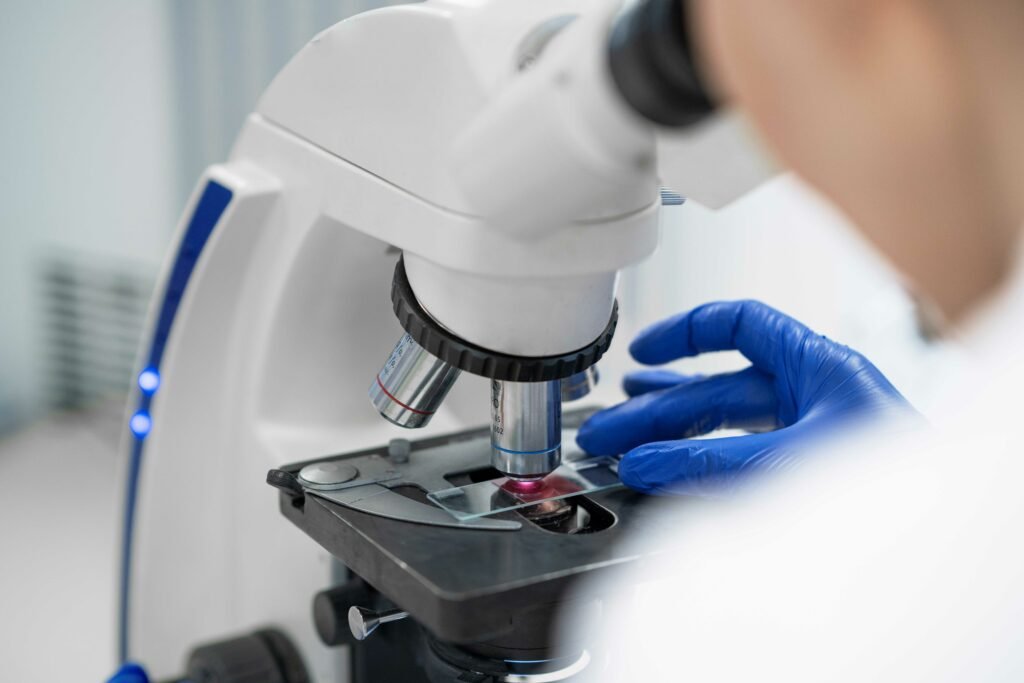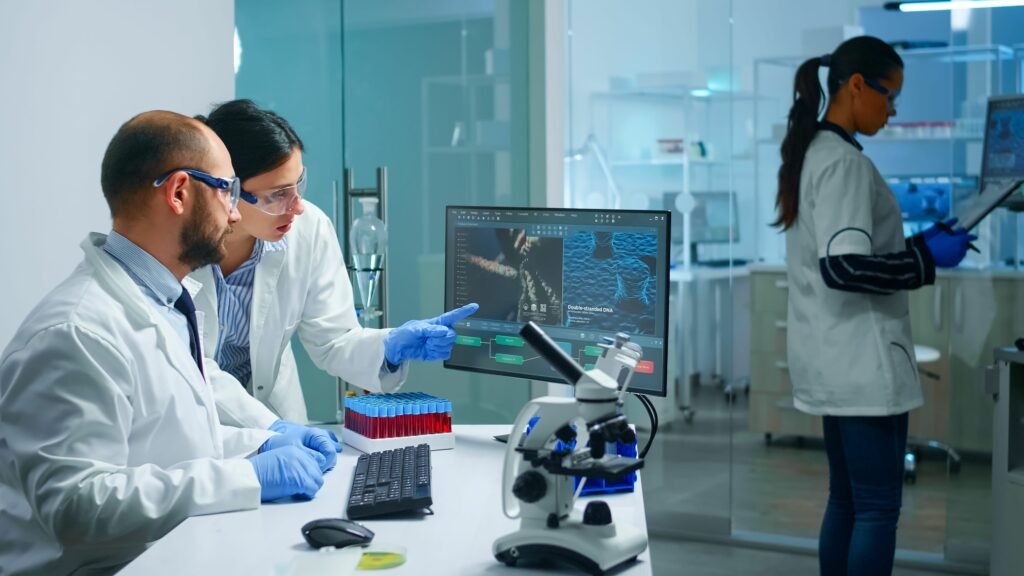The biopharmaceutical industry is a critical pillar of healthcare, focusing on developing drugs derived from biological sources. This industry faces immense challenges like lengthy development times, high costs, and the need for precision. However, a transformative change is underway, thanks to advanced automation tools. These tools, integrating cutting-edge technologies like AI and robotics, are not just an auxiliary aid but a transformative force in drug discovery and development. A striking testament to this transformation is the substantial growth in AI-mediated drug discovery investments, which saw a compound annual growth rate of 8% over the past five years, reaching $2.5 billion in 2022.
This investment underlines the expanding role of automation in the biopharmaceutical landscape, a journey we will explore in this blog post. Let’s take a look at how automation is revolutionizing the biopharmaceutical industry, reshaping the path to groundbreaking medical discoveries and treatments.

Key Automation Technologies Reshaping Biopharmaceutical Development
Automation technologies in biopharmaceutical research, leveraging AI, ML, robotics, and data analytics, are crucial for advancing drug development. These technologies bring unmatched precision and efficiency, significantly impacting the R&D process.
Within this automated landscape, there is a diverse range of tools, each addressing different aspects of biopharmaceutical research. A pertinent example is the single cell seeder, particularly important in the process of cell line development. Its role in isolating and accurately dispensing individual cells directly supports the objectives of automation by enhancing the precision and consistency of cell line development. This is particularly vital for biopharmaceuticals, where the uniformity and reliability of cell cultures are crucial.
The combination of these technologies and automated tools like single cell seeders, and advanced imaging systems represents a significant leap forward in biopharmaceutical research. It’s not just about doing things faster or more efficiently; it’s about doing them smarter, leading to more personalized, effective, and innovative treatments.
Overcoming Traditional Bottlenecks in Research and Development
Automation is transforming biopharmaceutical research and development by tackling traditional challenges such as protracted development timelines, substantial costs, and the imperative for high accuracy. Advanced technologies like high-throughput screening are revolutionizing the drug discovery process by enabling rapid analysis of thousands of compounds, significantly shortening the journey from concept to clinical trials. This acceleration is particularly vital in responding to emergent health crises, like pandemic outbreaks, where time is of the essence.
Cost-wise, the integration of automated systems in biopharmaceutical R&D represents a transformative change. By automating routine, labor-intensive tasks, these systems reduce operational expenditures. They also minimize the need for repeated experiments due to increased consistency and efficiency, contributing further to cost savings.
In terms of accuracy, the precision of automated data analysis tools is unparalleled. These systems reduce human error, thereby ensuring higher data integrity. This aspect is crucial not only for the robustness of research outcomes but also for adhering to stringent regulatory standards and achieving successful clinical trial results.
Overall, the advancements in automation not only expedite the research process but also enhance the quality of the outcomes. The scalability and adaptability of these systems are indispensable in an evolving healthcare environment, facilitating a smoother transition from laboratory research to market-ready products and enabling a more agile response to global health needs.
Ethical and Regulatory Considerations
As automation technologies become more integrated into biopharmaceuticals, they raise distinct ethical and regulatory challenges. The industry must ensure these automated processes meet rigorous safety and efficacy standards. Addressing the ethical implications of AI decision-making and data privacy is increasingly vital.
Regulatory bodies are evolving to keep pace with these technological changes, creating guidelines that balance patient safety with the promotion of innovation. Transparent and responsible automation usage is crucial for maintaining public trust and adherence to regulations. Moreover, ethical automation practices are vital for safeguarding against biases in AI algorithms, ensuring equitable and safe treatment outcomes.
The Future of Biopharmaceuticals with Automation
The future in biopharmaceuticals is on the brink of a major transformation, driven by advanced automation. Continuous innovation in this field is expected to revolutionize drug discovery and production. Automation could catalyze the growth of personalized medicine, providing more targeted treatments for complex diseases.
Additionally, automation is set to streamline clinical trial processes, making them more efficient and accurate. This will improve patient safety during trials and expedite the approval process for new drugs. Predictive analytics will become increasingly important in determining possible treatment outcomes. And drug candidates as AI and machine learning become more integrated. This technological development is also anticipated to improve the accessibility and affordability of healthcare globally, creating new opportunities for drug therapy research and development.

Conclusion
The integration of advanced automation in biopharmaceuticals marks a significant stride in medical science, fostering faster, more effective drug development. This evolution promises a future with more personalized, accessible medical treatments, highlighting the impact of automation in driving major advancements in healthcare. Ultimately, this technological synergy in biopharmaceuticals paves the way for groundbreaking innovations. Ensuring a healthier and more hopeful future for all.
